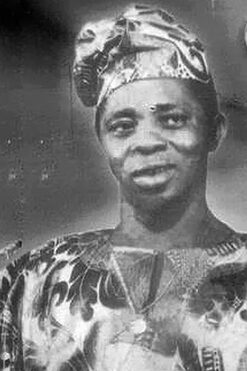Ayinla Omowura: 45 Years On, Apala Legend’s Spirit Lives Through His Music.
Fans and musicians gather in Abeokuta to celebrate the lasting legacy of Ayinla Omowura and the enduring power of Apala rhythm


Forty-five years after his tragic death, the legacy of Ayinla Omowura, the Apala music legend, continues to echo across Yoruba land and beyond. The ancient town of Itoko, Abeokuta, was alive with celebration as lovers of Yoruba culture and Apala music gathered to honour a man whose music still speaks to the heart of the people.
The week-long programme, held in May, was a vibrant tribute to Omowura’s life and work. From Monday to Wednesday, the town buzzed with activities, including cultural displays and storytelling sessions about the late icon. On Friday, a special prayer was held at a local mosque, followed by a lively fans’ club party on Saturday. The grand finale was a colourful musical concert on Sunday, May 18, where musicians from different generations paid homage to Omowura, performing his timeless songs and sharing stories about his impact.
“Ayinla was more than a musician; he was a prophet in his own right. He predicted many of the things we see happening in this country today,” said Sikiru Gbadeyan, a devoted fan.
Bisi Oyebanji, a young dancer and student, also shared her admiration: “His voice fought for the common man. He taught us culture, morality, and resistance through rhythm. His legacy will never fade.”
Born in 1933 in Abeokuta, Ogun State, Ayinla Omowura did not have the chance for formal education. He started out working at his father’s blacksmith shop, then moved through several jobs as a driver, butcher, carpenter, and bus park boy. His musical journey began when he was discovered by Adewole ‘Oniluola’ Alao, who became his lead drummer and close collaborator.
Omowura quickly became known as a cultural promoter and a fearless social commentator. His music was rich with Yoruba proverbs, metaphors, and sharp satire. He was never afraid to call out government failures and social ills. In his 1976 album ‘Owo Udoji,’ he praised the government’s salary increase but also challenged the private sector to do the same. In songs like ‘National Census’ and ‘Orin Owo Ile Eko,’ he broke down complex policies for ordinary people to understand.
Despite his lack of formal schooling, Omowura’s lyrics were powerful and full of wisdom. He used his songs to address issues like skin bleaching, promiscuity, and the moral decline he saw in society, especially among women. He was a true voice for the people, using music to fight for justice and preserve Yoruba culture.
Omowura’s personal life was as colourful as his music. He was known for his fiery temper and public arguments, often clashing with other musicians like Haruna Ishola, Sikiru Ayinde Barrister, and Yesufu Olatunji. Rivalries were common in those days, and musicians often used their records to throw lyrical jabs at each other. In one famous incident, his rival Fatai Olowoyo mocked Omowura’s appearance, which reportedly led Omowura to visit a dentist.
He was tough both mentally and physically, never shying away from a fight—whether with words or with his fists. His songs were filled with metaphors from the animal kingdom, showing his deep understanding of Yoruba oral tradition. At the same time, he struggled with insecurity and a mistrust of Western education, perhaps because he never had the chance to go to school himself.
Yet, Ayinla Omowura was much more than just a streetwise musician. He was an enigma—a man who spoke the language of the common people but carried the soul of a poet and a griot. His flamboyant fashion, powerful stage presence, and unapologetic authenticity made him a legend in Nigerian music.
He was married to Afusatu of the Ile Eleni clan and Tawakalitu Owonikoko. Omowura was a devout Muslim who performed the Hajj pilgrimage in 1975, but he also took part in traditional religious practices, showing the blend of faith and culture that shaped his life.
Today, Ayinla Omowura’s music remains a powerful force in Nigerian culture. His songs are played at parties, on the radio, and in homes across the Yoruba-speaking world. Young musicians continue to draw inspiration from his fearless commentary and unique Apala rhythm.
The 45th anniversary celebration in Abeokuta was more than just a remembrance—it was a reminder that Ayinla Omowura’s legacy is alive and well. His music still inspires, teaches, and entertains. As fans and musicians gathered to honour him, it was clear that the spirit of Ayinla Omowura will never fade.
Stay woke. Stay tuned. Stay with AKEWE NEWS.




